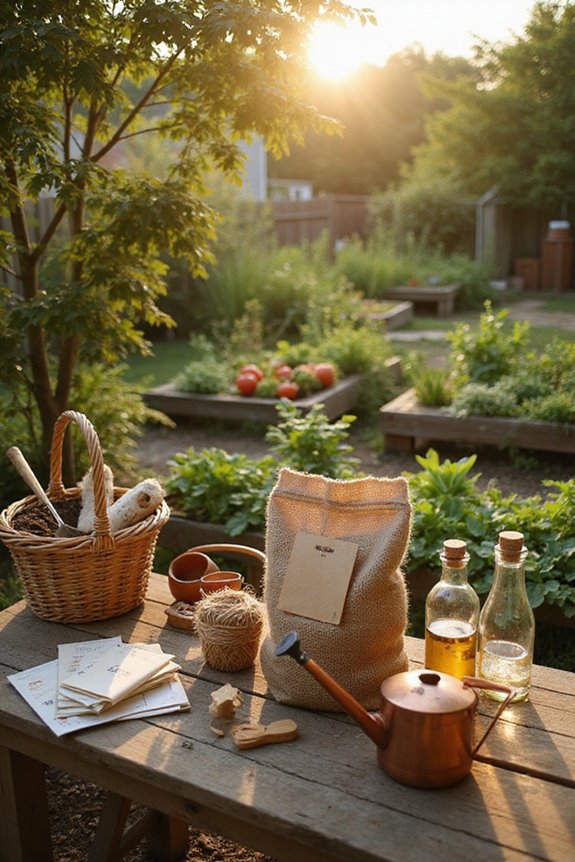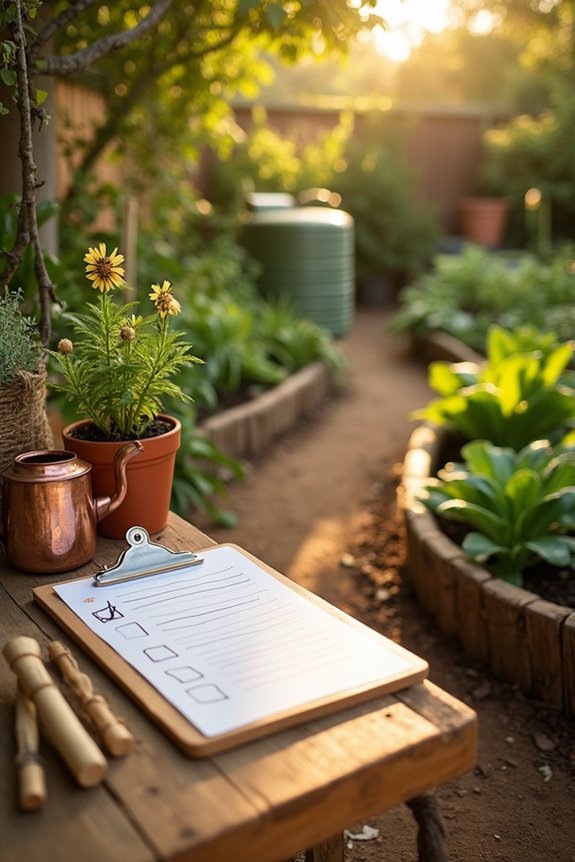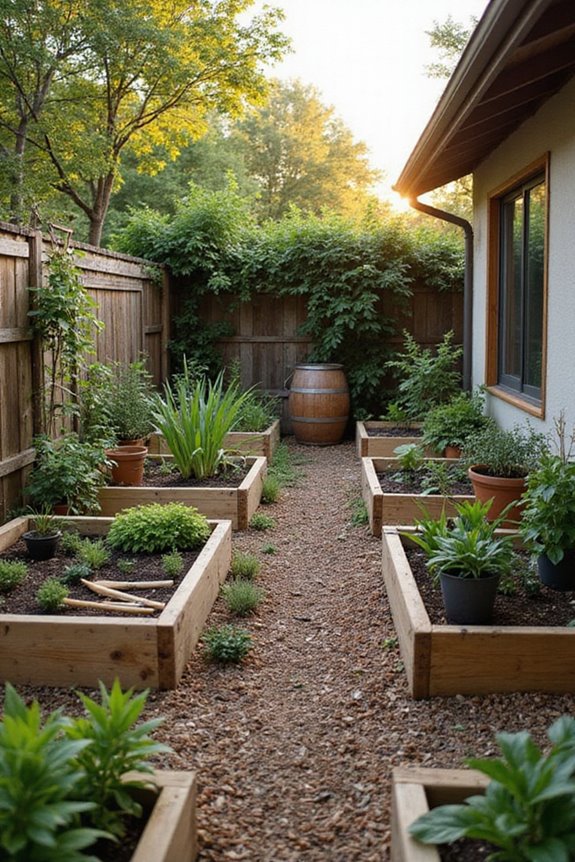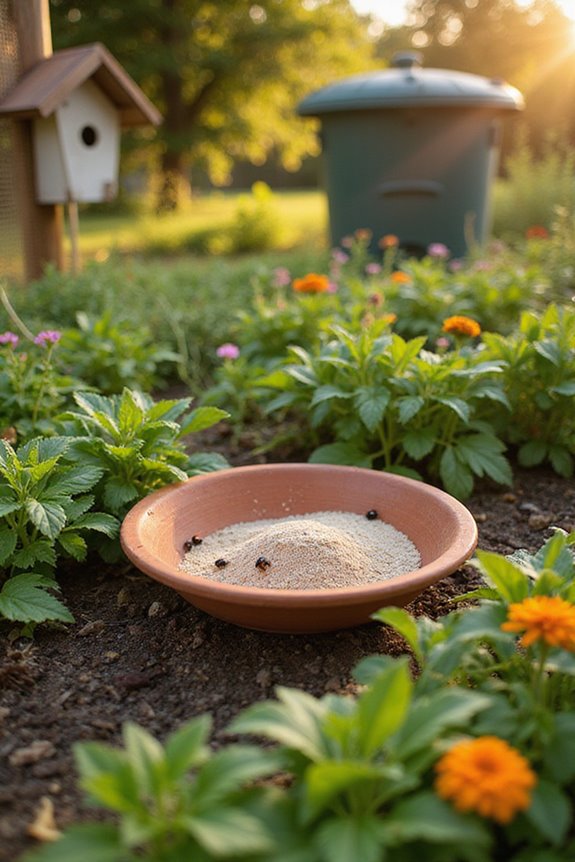To choose organic garden supplies, we should focus on a few key areas. First, we need organic fertilizers that come from natural sources like plants or animal manure. Next, we can improve our soil with amendments such as compost or peat moss, depending on our soil type. It’s also important to select certified organic seeds for healthy growth. Finally, we should look for reliable suppliers and avoid synthetic chemicals to support sustainability. There’s more to explore on this topic.
Key Takeaways
- Select certified organic seeds that meet USDA standards for quality and compliance.
- Choose organic fertilizers based on plant nutrient needs and soil conditions for optimal growth.
- Utilize soil amendments like compost or peat moss to enhance soil texture and fertility.
- Prioritize suppliers with transparent sourcing practices and certified organic products.
- Implement natural pest control methods, such as neem oil and beneficial insects, for sustainable gardening.
Understanding Organic Fertilizers
When we think about organic fertilizers, it’s important to understand their various types and benefits. Organic fertilizers come from plant, animal, or mineral sources, helping us achieve the right nutrient balance for our gardens. Plant-based options like alfalfa meal and compost improve soil condition, while animal-based fertilizers such as manure and blood meal provide high nitrogen for leafy growth.
Here’s a quick breakdown:
- Plant-Based Fertilizers: Improve soil and provide moderate nutrients.
- Animal-Based Fertilizers: Supply essential nitrogen and phosphorus.
- Mineral-Based Fertilizers: Adjust soil pH and deliver crucial minerals.
For effective fertilizer application, we should match the type of fertilizer with our plants’ specific nutrient needs. This guarantees healthy growth and a thriving garden.
Selecting Soil Amendments
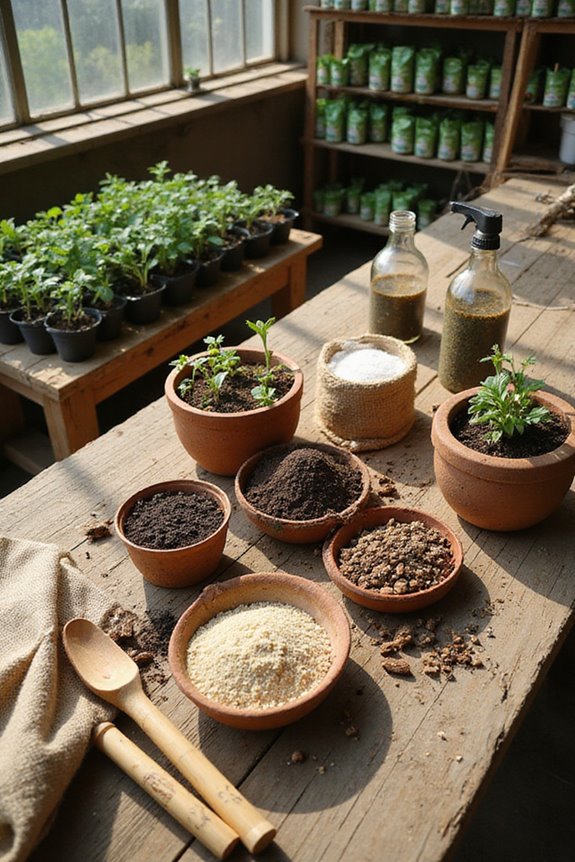
Selecting the right soil amendments is essential for enhancing our garden’s health and productivity. We should consider our soil texture when choosing amendments, as this can greatly affect plant growth. For sandy soils, organic compost improves moisture retention, while peat moss is excellent for clay soils.
To achieve a good nutrient balance, we can use various organic amendments, such as animal manures or biochar. These materials not only supply essential nutrients but also enhance soil structure and aeration. Additionally, locally sourced options reduce our carbon footprint and support community sustainability.
Regular soil testing can help us tailor our amendments to our garden’s specific needs. By integrating these practices, we can cultivate a thriving, healthy garden together.
Choosing Organic Seeds and Plants
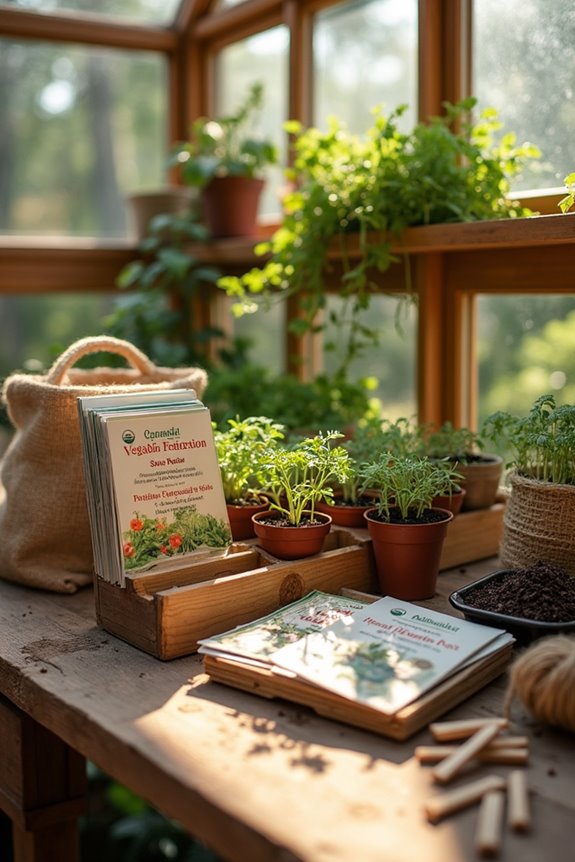
Organic seeds and plants are the foundation of a successful garden. When selecting seeds, we should prioritize certified organic options. These seeds meet USDA standards and are free from synthetic pesticides and GMOs. Heirloom and open-pollinated seed varieties are excellent choices for their flavor and adaptability.
- Seed Sourcing: Look for reputable suppliers with organic certifications. Participating in local seed swaps can also connect us with high-quality, regionally adapted seeds.
- Location Considerations: It’s essential to choose seeds suited to our local climate. Using the USDA Plant Hardiness Zone Map can guide us toward the right seed varieties.
Organic Pest Control Options
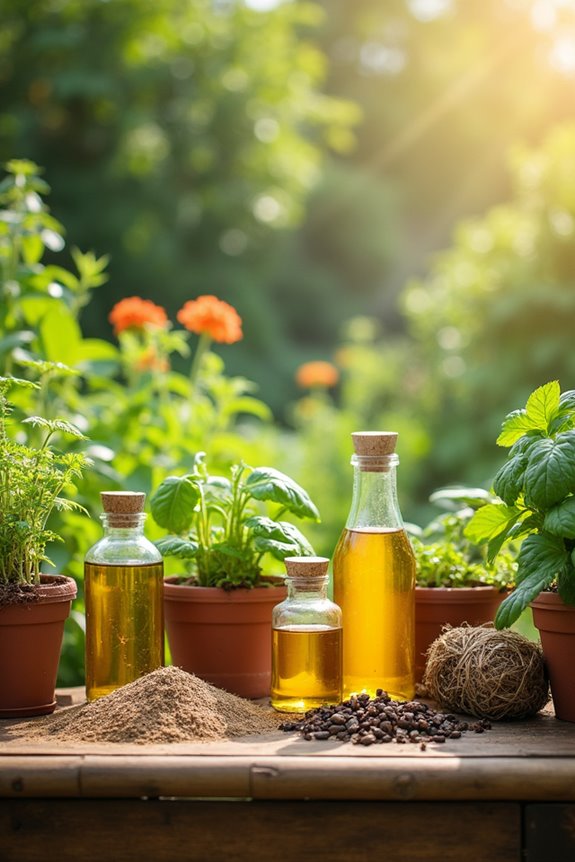
How can we effectively manage pests in our organic gardens? We have a variety of options to evaluate. For instance, neem oil benefits include disrupting insect hormonal systems, while Spinosad effectiveness shows it’s great for paralyzing pests. We can utilize Bt applications or Pyrethrin usage to target specific insect larvae. Physical barriers like floating row covers and copper barriers protect our plants from larger threats.
Additionally, we should encourage beneficial nematodes and predatory insects, like ladybugs, to help control populations. Implementing crop rotation and companion planting can also deter pests naturally. Regular soil testing and monitoring pests are key. By combining these methods and sharing our experiences through community support, we can create thriving, organic gardens together. Furthermore, utilizing natural pest control methods can significantly enhance the effectiveness of our strategies.
Evaluating Supply Sources and Sustainability
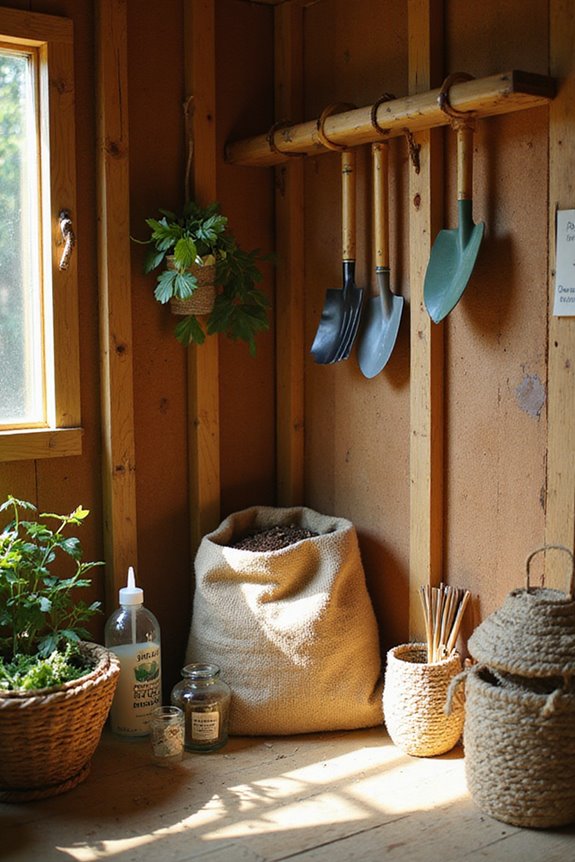
When we think about sourcing our organic garden supplies, what factors should guide our choices? First, we should prioritize supply transparency. This means seeking suppliers who openly share their sourcing practices. Certified-organic seeds and OMRI-listed fertilizers provide assurance of quality and compliance with organic standards.
Next, let’s consider sustainability. Choosing locally sourced materials reduces our carbon footprint and supports local ecosystems. We should avoid synthetic chemicals and opt for biodegradable options.
Lastly, it’s important to verify the integrity of our supplies. Engaging with reputable suppliers guarantees we’re getting truly organic products. By focusing on these aspects, we can make informed decisions that align with our gardening values and contribute to a healthier environment.
Frequently Asked Questions
How Do I Know if a Product Is Truly Organic?
To know if a product’s truly organic, we should look for proper organic labeling, and trace its product sourcing. Together, we can guarantee we’re supporting genuine organic practices that align with our shared values of sustainability.
Can I Use Organic Supplies in Conventional Gardening?
Absolutely, we can use organic supplies in conventional gardening! The gardening benefits are incredible—think of transforming our gardens into thriving ecosystems. Organic vs conventional? It’s a game changer for sustainability and plant health, together we thrive!
What Is the Shelf Life of Organic Garden Supplies?
When it comes to shelf life, organic supplies often last longer if stored properly. With attention to storage conditions, we can guarantee our fertilizers and pesticides remain effective for their intended duration, boosting our gardening success.
Are There Any Specific Certifications I Should Look For?
Did you know that only about 1% of U.S. farms are certified organic? We should look for organic labels that meet certification standards, ensuring our choices support sustainable practices while fostering a sense of community and health.
How Can I Store Organic Seeds Properly?
To store our organic seeds properly, we should prioritize airtight containers and maintain low humidity. This way, we enhance seed viability and guarantee they remain healthy and ready for planting season after season.

